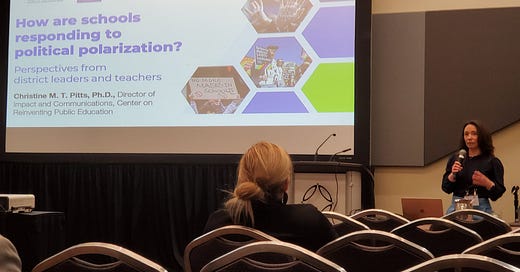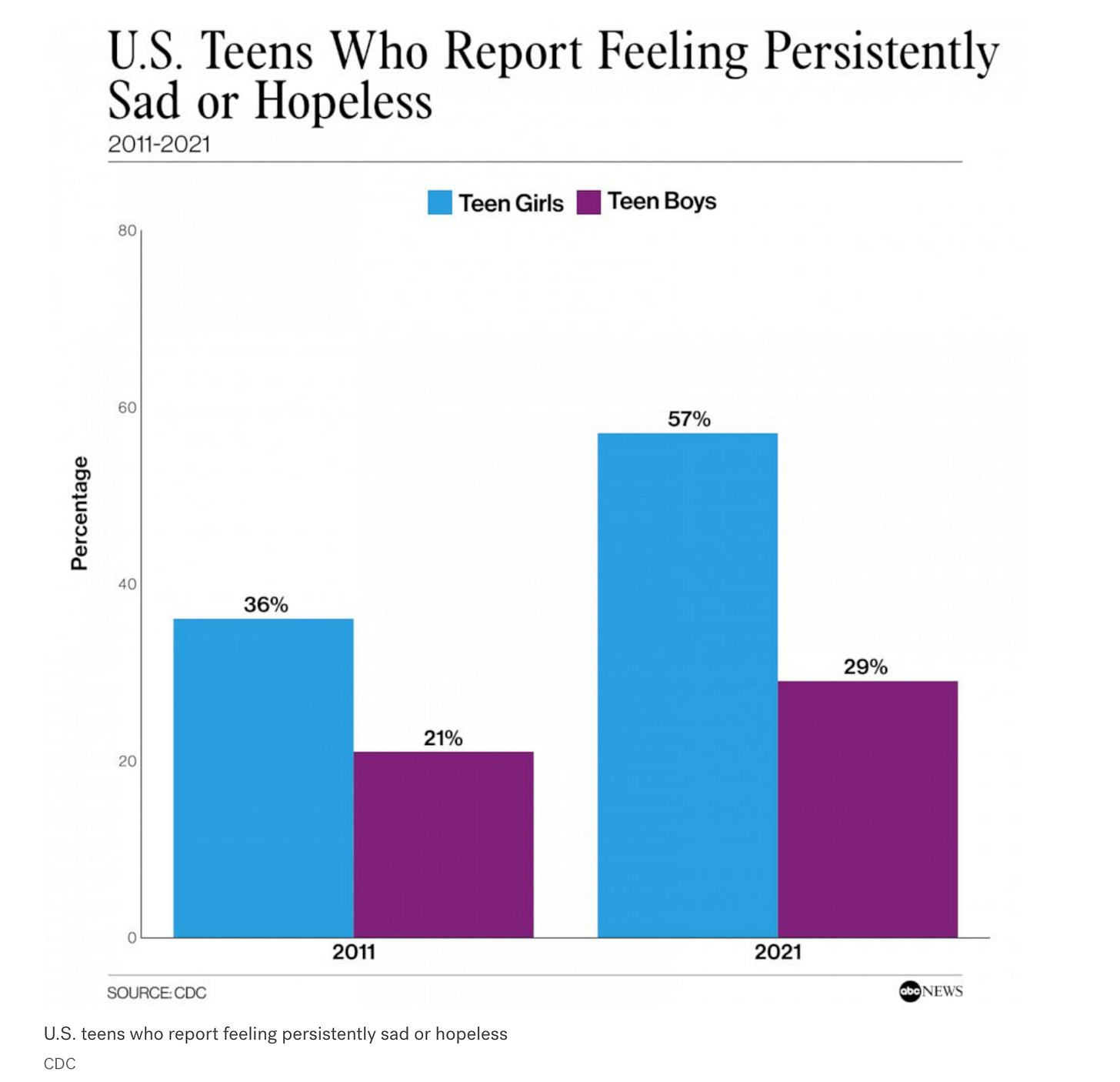The Education Policy Hotlist
Top news in U.S. education policy for the week of February 20 - 24
At the National Conference on Education last week, I spoke with superintendents and school board members about how politics are taking a toll on their districts. I don’t take for granted the time I can spend with district leaders — especially when witnessing reflection and meaning-making.
During my session, we engaged in a forced-choice activity where participants explained why they chose a particular pathway to handle political tensions. Two things emerged from our conversation:
Creating and relying on predictable systems for discussing hot-button issues provide stakeholders with boundaries that ensure safety during decision-making.
It is helpful to slow down and hold space for concerned parties to share why they are bringing a concern to the table. Sometimes, what seems like an intellectual assault may be a misdirected complaint.
My biggest takeaway from the week: Even though headlines don’t always capture how our systems are rising to meet today's (and tomorrow’s) challenges, most school districts are asking questions that challenge traditional assumptions about schools and who is at the design table.
It is time to study and elevate stories of partnership, productive struggle, and collective growth.
THE WEEK AHEAD
On Wednesday, February 22, 2023, at 8:30 a.m. (PST) CALDER is hosting its 14th annual conference in Arlington, VA.
TEACHER WORKFORCE POLICIES AND RESEARCH
Bernie Sanders (D-VT) plans to introduce a bill to set a national minimum teacher salary [USA Today].
Oklahoma House Republicans announce a statewide $2,500 teacher salary increase [OK].
An emerging research-practice partnership in Illinois studies the intersection of K12 school, postsecondary education, and statewide workforce trends [IWERC].
The National Center for Teacher Residencies released Six Policy Recommendations for Improving the Recruitment and Preparation of Black Educators [NCTR].
Nearly all sectors face massive workforce shortages, and some state leaders are considering removing degree requirements to improve pathways [Plurbius].
ASSESSMENT AND ACCOUNTABILITY
Improving design and access to data can support Tribal sovereignty. The Data Quality Campaign outlines three steps toward this goal in its latest brief [DQC].
New Jersey wants to make the Covid-19 era policy eliminating test proficiency for graduation a permanent rule [The74].
An updated database includes links and summaries of nearly all 50 states’ 2021-22 summative assessment data. Explore information about your statewide outcomes measures [AssessmentHQ].
POLICIES CHANGING SYSTEMS
Workforce-ready badges in Indianapolis can help students prepare to transition from high school to work successfully. Yet, for badges to carry their intended weight, they must come from a reputable source [The74].
In response to a wave of new state policies proposing “universal” ESAs, Finn provides a pragmatic framing about how states can use traffic controls to maintain integrity to the true purpose of ESAs to advance student equity [Fordham].
A new blog argues that a critical part of addressing school controversies and political challenges is understanding how each fits into the larger education ecosystem [Brookings].
FEDERAL RELIEF SPENDING
Bellwether released a new funding brief and interactive tool to help state policymakers develop different funding models within varying enrollment and revenue contexts [Bellwether].
Curriculum and supplemental instruction move to top priorities in district ESSER spending [Tyton].
ENROLLMENT
A new policy brief provides evidence of Wisconsin’s successful open enrollment program, including recommendations for the most successful features [Reason].
STUDENT WELL-BEING
In the last decade, teen girls' hopelessness increased by 20 percent. Compared to 2011, when 36% of teen girls reported feeling persistently sad or hopeless, nearly 3 in 5 reported these feelings in 2021 [ABC].
SCIENCE OF READING
Ohio Governor DeWine is committing to the science of reading and may ban the “three cueing” strategy across the state [OH].
EARLY CHILDHOOD EDUCATION
More than two-thirds of this year’s gubernatorial state-of-the-state addresses included remarks about childcare. Affordable child care remains a top priority among nearly all of them [First Five Years Fund].
ICYMI
LibteratEd released guidelines for discussing police brutality with students.
Dr. Christine M. T. Pitts serves as Director of Impact and Communications at the Center on Reinventing Public Education, overseeing policy leadership and external affairs. A teacher and researcher by training, she previously led research and evaluation for Portland Public Schools. Pitts also served as Policy Advisor at NWEA, overseeing state and federal policy to advance equity and innovation in educational assessment. Follow her for more updates on Linkedin, Instagram, and Twitter.










